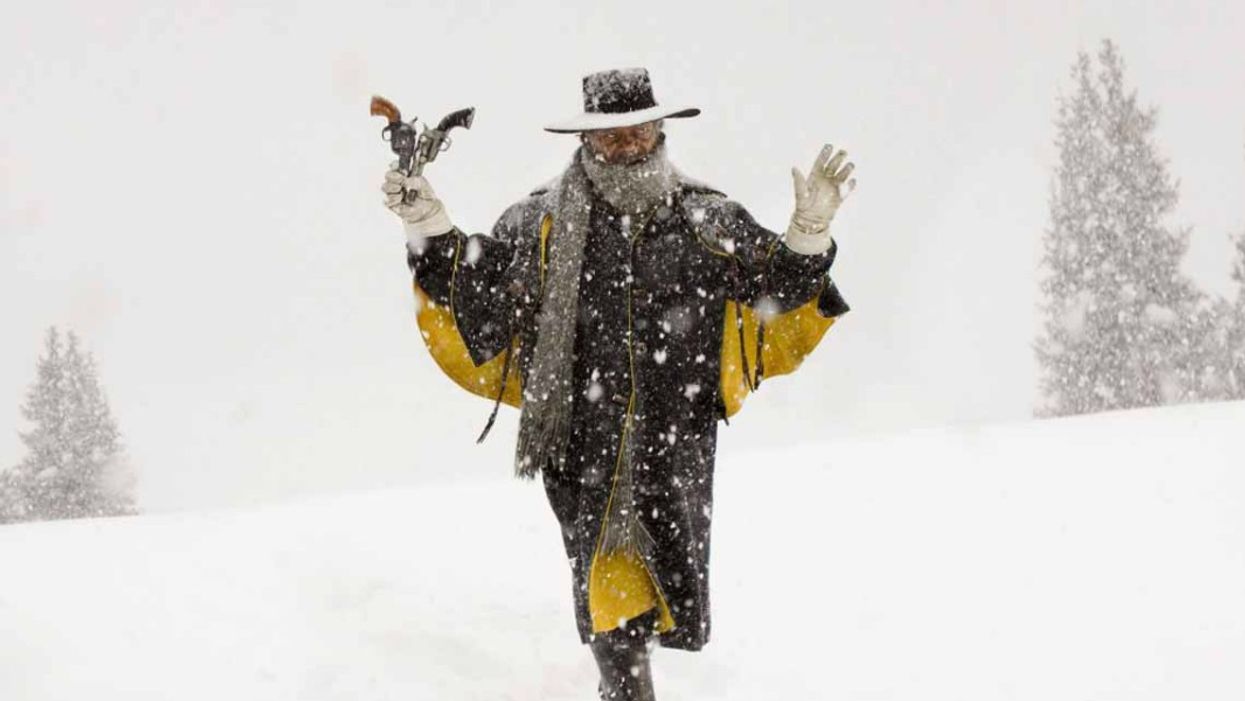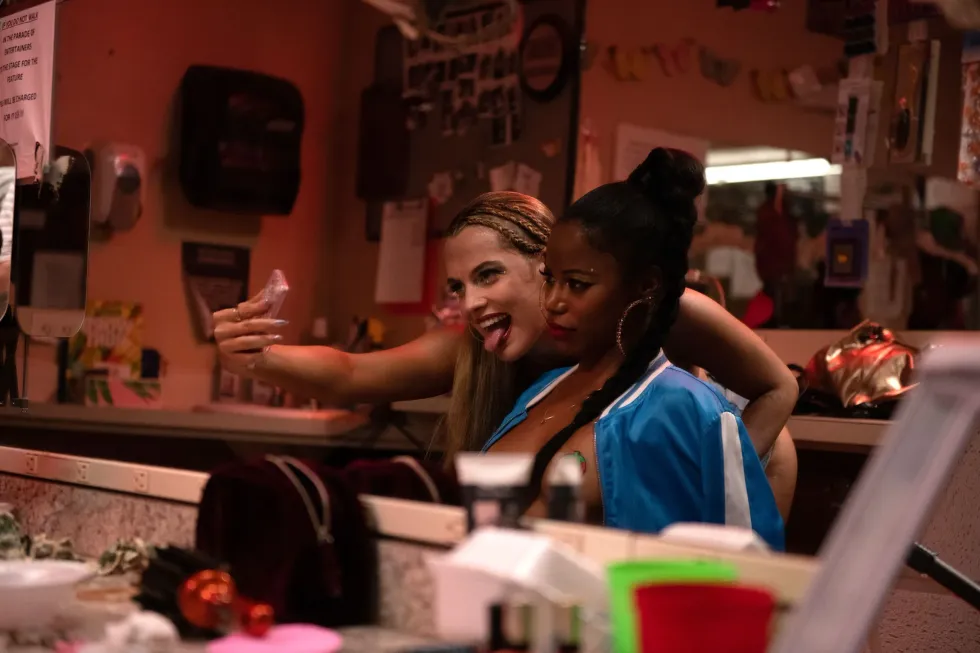What Made Quentin Tarantino Storm Out of a 'Hateful Eight' Meeting?
Tarantino knows what he wants and he does what he can to get it.

We like to talk about Quentin Tarantino here because his films matter. He puts everything he has in them and his art is celebrated over and over again. Are they all perfect? No. but art is not about perfection. It's about how you feel while absorbing it.
Filmmaking is hard because this art comes with extreme limitations. It's collaborative. You have to get the actors you know who can carry the story and you have to pay sometimes exorbitant prices to use the tools you want.
That's the frustrating part of this business.
But when you're popular at the studios and a certified auteur, you can negotiate the stuff you want for your art.
So knowing all of that...
What Made Quentin Tarantino Storm Out of a Hateful Eight Meeting?
When it came time to sell The Hateful Eight to studios, the line to meet with Tarantino was around the block. Jeff Shell, the CEO of NBCUniversal, was one of the early people to meet with Tarantino. But he had his own ideas for how the movie could be popular and find an audience.
And what he suggested caused Tarantino to storm out of the room...
Tarantino had major plans for The Hateful Eight.
The budget was set close to $100 million and the movie was shooting on 70mmm film They were going to restore old projectors and do a roadshow unveiling it across the world.
And that sounded expensive and unnecessary to Shell. He pitched the idea of bringing the movie to the masses more directly, releasing the film on iPhones and in theaters. According to accounts, Tarantino replied with a simple “great,” and immediately walked out of the meeting.
What happened next?
Tarantino made a deal with The Weinstein Company. It distributed the film, which would only bring in $155 million worldwide at the box office. The problems were not just with receipts. The vintage projectors had problems, the run time causes limited showings, and the reviews were only okay. The film still garnered a nice following and scored an Oscar win for Best Original Score for Ennio Morricone.
And yet, Tarantino got to fulfill his vision. We saw the movie the way it was intended. And we took part in the art he wanted.
But the story didn't end there.
Netflix steps up
When it came time for the movie to hit homes, Netflix brokered a deal that allowed Tarantino to put a longer extended cut on the platform. They also worked in a way to show the movie in parts, like it was a serialized TV show.
This recut was overseen by Tarantino and was another way his art could be enjoyed.
While he might have walked out of the original meeting with Shell, he wound up delivering a movie that was able to be seen on iPhones.
Meanwhile, Jeff Shell was starting his own revolution.
Day and date
Jeff Shell rose through the ranks at NBC Universal with one thing on his mind: figuring out how to capture both audiences who will pay to go to the theater and the people who would prefer to stay home?
His answer was simple: Provide a way for people to pay the ticket price from their couch or on their phone.
Shell has pushed the idea of day and date releases to great success, spearheading the application. This year he was behind Trolls: World Tour which was even more profitable than the original movie because it capitalized on people watching at home and taking a larger percentage of the profits.
It's probably the future of cinema.
Sum it up
At the end of the day, both men were right in their own way. Art is moving forward in ways we cannot foresee, and business is moving forward in ways we are trying to track. Since filmmaking is the ultimate intersection of both, it's hard to predict where it will go.
But I am confident the more access we have to make art, and the cheaper art becomes to make, the better the world can be.














